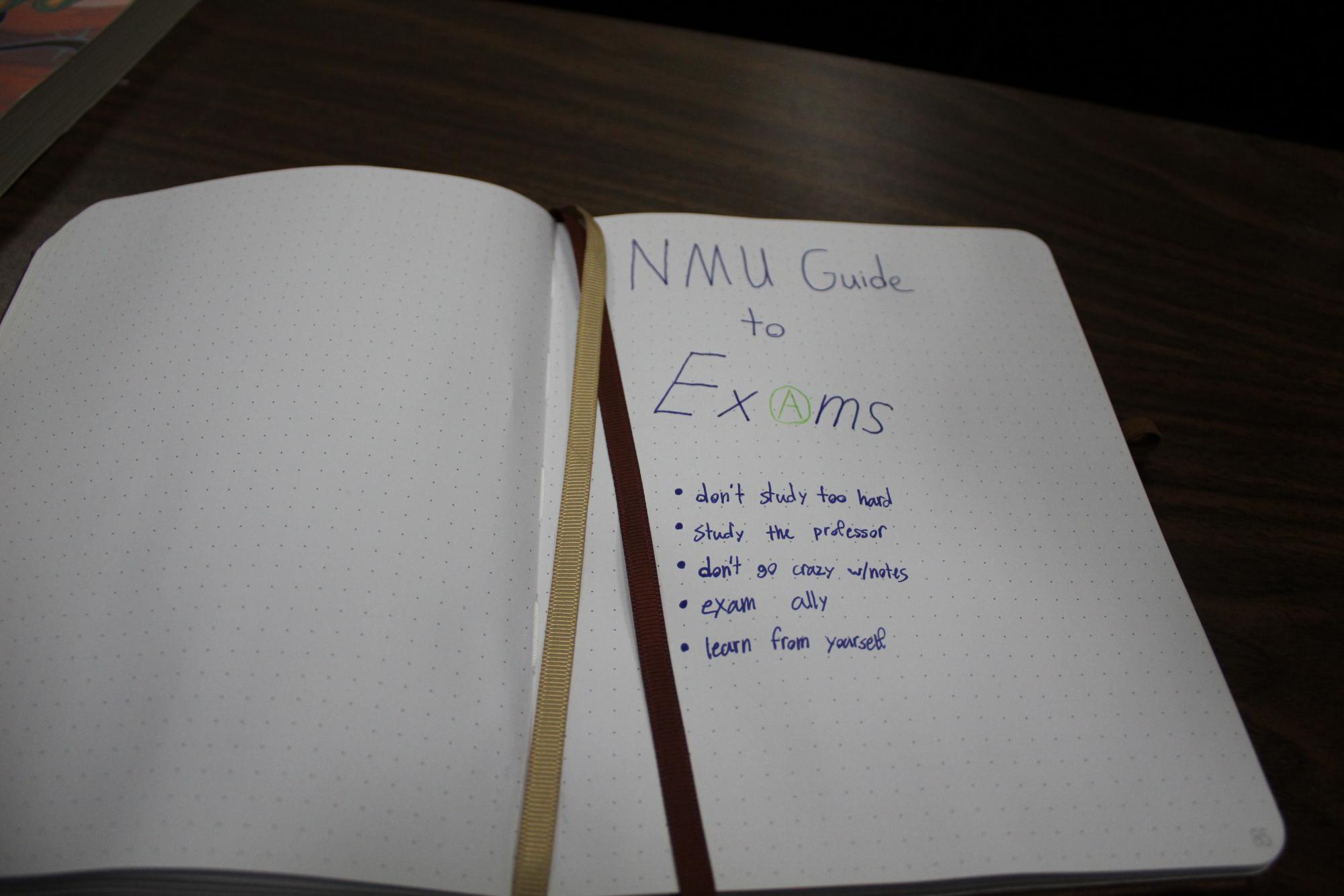As the midterms for the fall semester at Northern Michigan University have come and gone, and so have the exams. This is the first exam for students of the year, and I am certain not all of them were perfect As. Here I list foolproof, factual and unopinionated tips on how to turn that F to an A.
1. Don’t Study too hard
The knee-jerk reaction to a large upcoming exam is to study extremely hard right before it, to brush up on anything you may have missed. Studying is an invaluable tool to use when preparing for an exam, but you can overdo it. Over studying can cause mental, emotional and physical fatigue. If those are bad enough during the exam, then studying will be pointless. So, study intermittently, and brush up on what you don’t know. Do not overdo it.
“I don’t know about you, but I can take a midterm exam. It’s 35% of my grade, off of 3 hours of sleep with eight cups of coffee in me.”
“Sure you can….”
2. Analyze the professor
Over the course of your class, it is important to study your professor as much as what they teach, maybe a little less. Look for how they grade and what they are grading for, what questions they ask in class and what ideas they bring up in it and so on. These are all clues that can help you prepare for exams.
Is your professor asking about an author’s interest in describing certain things, are they asking about certain dates in American history or are they more or less asking for summarized explanations of things? Whatever the professor asks about is important, it gets a little harder when they have a seemingly infinite slide show, but this tip should give you some idea of what to look for and understand.
“I studied Professor Bingus’ weekly 42-slide presentation and none of it was on the exam…”
“Buddy, everyone who has taken a class with Bingus knows they only care if a European Swallow can carry a coconut. That professor talks about it nonstop, it wouldn’t be in the slides.”
“Your wisdom knows no bounds oh wise sage.”
3. Don’t spend all your time on notes
The most important piece of college advice that my teachers in high school told me was to take great notes. It was absolutely useless advice with a few kernels of truth in there.
The most important thing when it comes to studying at college is listening to your professors. A lot of students take notes on their readings and then go into class, thinking the lesson is for those who did not do the reading. It is more important to lock in when the professor is talking then doing the reading, in most cases.
Ideally, you do both, but we college students are busy folks and that doesn’t always happen.
4. Find an ally for exams
One of the biggest resources for preparing for exams are your fellow students. To access it, all you have to do is make friends. Consult the other guides to learn how.
Other students can help you focus on things you missed in class, lessons you haven’t fully grasped and more. For me, I find a lot of motivation by the geniuses that surround me in my classes. They inspire and drive me to do better in class. They can do the same for you, if you check your ego.
“Oh wise sage, you are so humble. I thought you were the wisest on all campus.”
“A leader isn’t the one with the best ideas, they are the ones who listen for the best ideas.”
“Oh praise the all-wise sage.”
5. Learn from your mistakes
You are going to do badly on an exam at least once in your life. If you don’t ever fail one, I am going to call the Men in Black because you wouldn’t be human.
However, you must learn from your mistakes when it comes to failing a test. It always hurts an ego when you fail, but how will you do better if you don’t study the causes of your own defeat? Sometimes that requires approaching the professor to talk about what went wrong. I did this as a freshman and it felt humiliating. Then the professor’s eyes lit up and they highlighted the issues of my exam, and they helped guide me through to do extremely well on finals. Professors love to help their students and will often put in extra effort to do so, especially when you reach out.
“Even professor Bingus?”
“No, your mistake was signing up for their class.”







